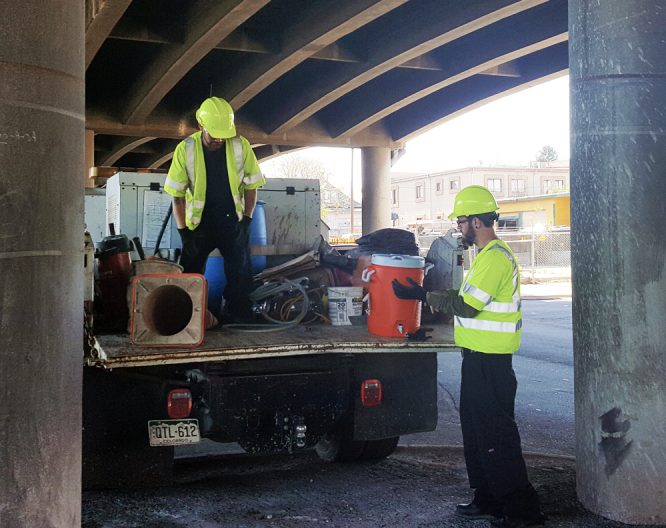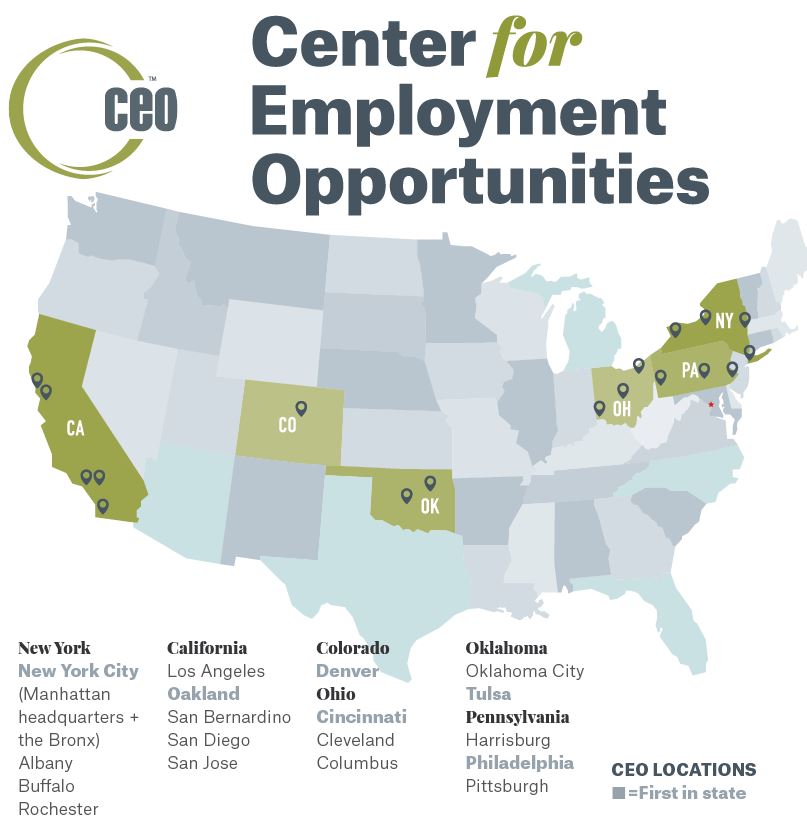National Nonprofit Opens Denver Branch, Providing Employment Services to Counter Recidivism Rates
According to the National Institute of Justice (NIJ), over 76 percent of past prisoners were re-incarcerated within five years of their release. Many argue that the U.S. penitentiary system is in desperate need of a change, as the current model relies heavily on a high inmate population and continuous re-incarceration. Once released from prison, most individuals have a difficult time integrating back into society, as their criminal background hinders their ability to find a job and even apply for housing. However, organizations exist today that are combating the stigma of a “criminal” by providing employment services to previously incarcerated individuals.
Once such group – The Center for Employment Opportunities (CEO) – is recognized as the leading employment reentry organization in the country. Founded originally as the Vera Institute of Justice in the 1970’s, today CEO offers comprehensive employment strategies to help those with a criminal background successfully transition to life after prison.

Valerie Greenhagen, the Director of Denver County, has been with the nonprofit since May, when CEO opened their first Colorado office. Today, CEO has 16 sites around the country. Greenhagen explained that CEO opens branches depending on where a need persists, which translates to the number of individuals released from incarceration. CEO’s foray into the Denver market was somewhat unique, as they responded to an RFP released by the Governor’s Office of Community Partnerships, who was looking for a provider to coordinate transitional jobs for people on parole. This led to a partnership between the Community Partnerships, CEO, Department of Corrections and the Colorado Department of Transportation (CDOT). Because CEO participants typically perform crew-based work during the transitional phase, partnering with CDOT was a perfect fit.
“We do employment really well,” Greenhagen explained. “We also provide financial coaching, and work tirelessly to development relationships in the community so we can connect the individuals in our program with outside organizations to help them find full time, permanent work.”

CEO’s model – which provides intensive transitional support along with post-job placement services – has proven extremely successful in the evaluation stage. According to a three-year study published by MDRC – a nonpartisan education and social policy research nonprofit – CEO’s methods reduce both recidivism and the number of overall days individuals are incarcerated. According to CEO, while there are clear phases to their model, “participants move through the phases at their own pace, enabling each person to address their unique barriers to unemployment.”
Greenhagen explained that most people hear about CEO through referrals, primarily from their parole officers. Once an individual enters the program, they undergo an intensive four-day class known as Life Skills Education (LSE). In this pre-employment styled class, students learn about resumes and job interviews, and how to talk towards their skills and interests in mock interviews. By day five of the program, students start work with a crew. Each person is paid daily, receives feedback from their supervisor on a daily basis and meets with vocational staff once per week. After some time (Greenhagen explains that depending on the person, this could range anywhere from 2 – 8 weeks), individuals meet with the business account manager to assess if they are ready to begin the search for full time employment. Once a match is made and individuals are placed in a full-time position, they continue to receive one full year of incentive based retention services. Greenhagen made it clear that this service was not merely an afterthought, but an important step in the program.
In a nation where incarceration rates are higher than any other country, and state expenditures on corrections continue to rise, programs like CEO are needed to address the gap between being released from prison, and re-integrating into society. Greenhagen explained that one of the biggest hurdles for many past prisoners is their criminal background history. She explained that CEO actually helps participants practice their answer if asked by a potential employer about their criminal history. They advise not to focus on the past, but to highlight their present dedication to ensuring a brighter future.

“You know, I’m biased,” Greenhagen said. “I work with these individuals every single day. I understand why employers are worried about risk, but our participants are great. There are a lot of preconceptions, as many people have never worked with someone with a criminal background. That is why I believe advocacy is so important, because it is hard for them to advocate for themselves.”
We are thrilled to acknowledge the Center for Employment Opportunities, and the incredible work they are accomplishing in Denver and across the U.S. CEO is another incredible organization housed at ULC’s Tramway Nonprofit Center in Denver’s Cole neighborhood, and we are proud to partner with this organization that directly impacts the lives of this underserved population. For more information about CEO, visit their website here.



